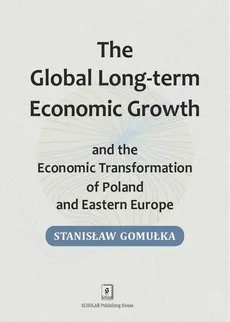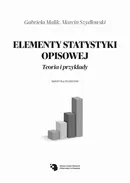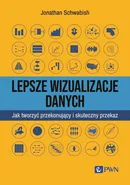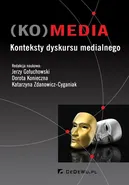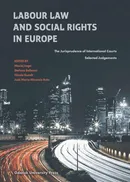Global Long-term Economic Growth and the Economic Transformation of Poland and Eastern Europe
One of the characteristic facts concerning the “catching-up countries” is the exceptionally large variation in their per capita annual rate of growth, from about zero to about 10%. The papers published in this monograph show that this rate is strongly dependent on the rate of investment, the quality of the labour force and the quality of institutions. The rate of investment is, in turn, dependent on the rate of domestic savings. In Poland, domestic savings are shown to have been and continue to be very low by international standards. The trend rate of growth of about 3.7% has been about 2 pp. higher than that of the most developed economies, mainly thanks to the development of modern market institutions and a new private sector, and partly thanks to foreign direct investments and a significant inflow of finance from the European Union (EU). The data also show that by far the least successful transformation in Eastern Europe has taken place in Ukraine.
(Author’s Introduction)
***
Our discussion is limited to the Technology Frontier Area (TFA) of the world. The central question is how the area’s innovation rate changes over time in the course of centuries. The analysis indicates that the pattern of change of the innovation rate over time may be eventually hat-shaped. This Hate-Shape Relationship is an empirical law that is given a theoretical interpretation. It is in part a prediction based on the author’s model of innovation and growth. Its acceleration and steady growth segments correspond well to the past reality. Its slowdown part is the central thesis of the book.
Stanisław Gomułka – born 1940 in Poland, MSc in theoretical physics in 1961 (with MSc work published in the Physical Review 1964), PhD in economics in 1966 from the University of Warsaw, in 1970–2005 a member of the economics department of the London School of Economics. During this period also a visiting professor at Pennsylvania University for one year, a visiting scholar at Harvard, Columbia and Stanford Universities, a research fellow at the Netherlands Institute for Advanced Studies in Wassenaar, an advisor to the IMF on Poland in 1985–87, and from 1989 through 2002 a key adviser to Polish finance ministers. Since 2013 a member of the Polish Academy of Sciences. The author of about 100 articles published in high quality journals and several books, the main ones being Inventive Activity, Diffusion, and the Stages of Economic Growth; Growth, Innovation and Reform in Eastern Europe; and The Theory of Technological Change and Economic Growth. These publications mainly deal with topics in economic growth, innovative activity, reforms in public finance, monetary policies, and comparative economic systems.
- Kategorie:
- ISBN: 978-83-67450-11-9
- ISBN druku: 978-83-67450-11-9
- Liczba stron: 435
-
Sposób dostarczenia produktu elektronicznegoProdukty elektroniczne takie jak Ebooki czy Audiobooki są udostępniane online po opłaceniu zamówienia kartą lub przelewem na stronie Twoje konto > Biblioteka.Pliki można pobrać zazwyczaj w ciągu kilku-kilkunastu minut po uzyskaniu poprawnej autoryzacji płatności, choć w przypadku niektórych publikacji elektronicznych czas oczekiwania może być nieco dłuższy.Sprzedaż terytorialna towarów elektronicznych jest regulowana wyłącznie ograniczeniami terytorialnymi licencji konkretnych produktów.
-
Ważne informacje techniczneMinimalne wymagania sprzętowe:procesor: architektura x86 1GHz lub odpowiedniki w pozostałych architekturachPamięć operacyjna: 512MBMonitor i karta graficzna: zgodny ze standardem XGA, minimalna rozdzielczość 1024x768 16bitDysk twardy: dowolny obsługujący system operacyjny z minimalnie 100MB wolnego miejscaMysz lub inny manipulator + klawiaturaKarta sieciowa/modem: umożliwiająca dostęp do sieci Internet z prędkością 512kb/sMinimalne wymagania oprogramowania:System Operacyjny: System MS Windows 95 i wyżej, Linux z X.ORG, MacOS 9 lub wyżej, najnowsze systemy mobilne: Android, iPhone, SymbianOS, Windows MobilePrzeglądarka internetowa: Internet Explorer 7 lub wyżej, Opera 9 i wyżej, FireFox 2 i wyżej, Chrome 1.0 i wyżej, Safari 5Przeglądarka z obsługą ciasteczek i włączoną obsługą JavaScriptZalecany plugin Flash Player w wersji 10.0 lub wyżej.Informacja o formatach plików:
- PDF - format polecany do czytania na laptopach oraz komputerach stacjonarnych.
- EPUB - format pliku, który umożliwia czytanie książek elektronicznych na urządzeniach z mniejszymi ekranami (np. e-czytnik lub smartfon), dając możliwość dopasowania tekstu do wielkości urządzenia i preferencji użytkownika.
- MOBI - format zapisu firmy Mobipocket, który można pobrać na dowolne urządzenie elektroniczne (np.e-czytnik Kindle) z zainstalowanym programem (np. MobiPocket Reader) pozwalającym czytać pliki MOBI.
- Audiobooki w formacie MP3 - format pliku, przeznaczony do odsłuchu nagrań audio.
Rodzaje zabezpieczeń plików:- Watermark - (znak wodny) to zaszyfrowana informacja o użytkowniku, który zakupił produkt. Dzięki temu łatwo jest zidentyfikować użytkownika, który rozpowszechnił produkt w sposób niezgodny z prawem. Ten rodzaj zabezpieczenia jest zdecydowanie bardziej przyjazny dla użytkownika, ponieważ aby otworzyć książkę zabezpieczoną Watermarkiem nie jest potrzebne konto Adobe ID oraz autoryzacja urządzenia.
- Brak zabezpieczenia - część oferowanych w naszym sklepie plików nie posiada zabezpieczeń. Zazwyczaj tego typu pliki można pobierać ograniczoną ilość razy, określaną przez dostawcę publikacji elektronicznych. W przypadku zbyt dużej ilości pobrań plików na stronie WWW pojawia się stosowny komunikat.








